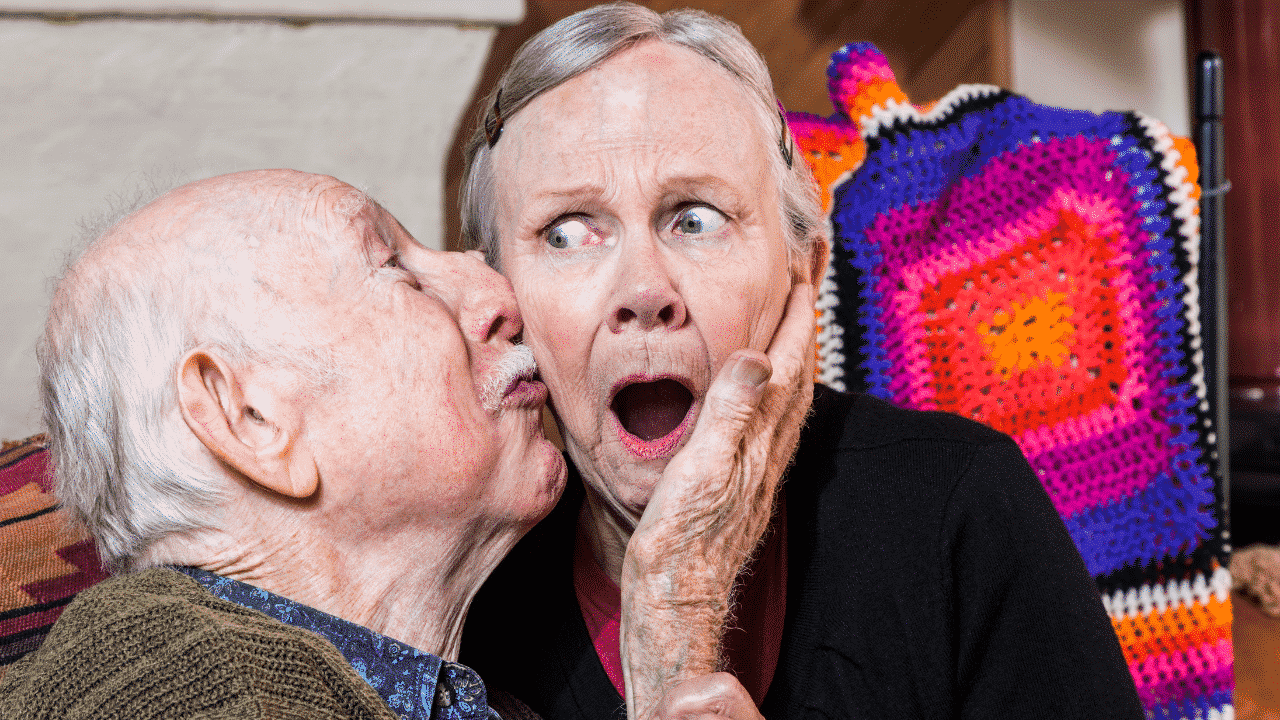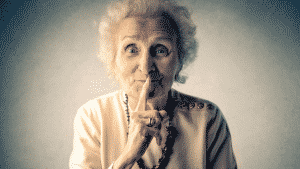Our attitudes about sexuality & aging may influence an older adults’ sexual health.
Researchers¹ have found that sex among older adults is often viewed as stereotypically “shameful, disgusting, laughable, and nonexistent”, which can lead to internalized stigma and increased sexual problems for older adults. To date, much of the research on aging sexuality issues has been conducted with healthcare providers who serve an aging population, including long-term care staff, and have found mixed results on permissive versus restrictive attitudes of staff. Current research¹ and healthcare policies also suggest that aging stigma is present within healthcare institutions where aging sexual concerns are often underreported, ignored, and left untreated.
In fact, a recent survey² of more than 1,000 adults between 65-80 years old, found that 50.9% of men and 30.8% of women reported being sexually active. In this same survey, when it came to discussing sexual health with health care providers, however, only 17.3% of adults aged 65–80 reported speaking to their health care provider about sexual health in the past two years and of those, the vast majority (60.5%) initiated the conversation².
On the contrary, research conducted in community samples of older adults¹, are finding that sexual stigma beliefs may NOT be as prevalent among the general population as cohorts become more sexually liberal over time. For example, as the Baby Boomers move into older adulthood and replace previous generations, they bring a more sexually liberal belief system that also places a higher importance on sexual well-being¹
So, in an effort to help mental health, senior care, and health care providers reflect on our own values and attitudes, I interview sexual health and aging expert, Dr. Maggie Syme.
In this interview Dr. Maggie Syme and I discuss:
- What it means to be a sexual citizen
- Attitudes about sexuality and aging
- Current research on intimacy and aging
- Benefits of sexuality and intimacy in older adulthood
- Dementia and sexual expression
- What sexual liberation looks like for older adults

About Maggie Syme, PhD, MPH
Maggie L. Syme, PhD, MPH is currently a Project Director at Hebrew SeniorLife Marcus Institute for Aging. Her research has focused on sexual health and wellness in later life, specifically on issues related to sexual consent and ageism. Prior to her current Project Director role, Dr. Syme was an Associate Professor and Associate Director of Research at Kansas State University Center on Aging. Contact Dr. Syme at [email protected]
Related Episodes:
- Aging & Sexuality: Benefits & Barriers of Sex Among Seniors
- Love After Loss: The Courage to Find Love After Widowhood
- HIV, Mental Health, and Older Adults: Must Know Statistics
- Living and Aging Well with HIV: The Need for Better Mental Health Care
[templatera id=1742]
References & Articles Mentioned in Episode
- Sexuality in Later Life, Clinical Gerontologist, Volume 44, Issue 3 (2021)
- (2021) “I Need a Little Sugar in My Bowl”: Prioritizing the Sexual Rights and Wellness of Older Adults, Clinical Gerontologist, 44:3, 207-209, DOI: 10.1080/07317115.2021.1902651
- (2021) Associations of Future Cognitive Decline with Sexual Satisfaction among Married Older Adults, Clinical Gerontologist, 44:3, 345-353, DOI: 10.1080/07317115.2021.1887420
- Hillman, J. (2017). Sexual consent capacity: Ethical issues and challenges in long-term care. Clinical Gerontologist: The Journal of Aging and Mental Health, 40(1), 43–50. https://doi.org/10.1080/07317115.2016.1185488
- Henry Rayhons Case: https://www.nytimes.com/2015/04/14/health/sex-dementia-and-a-husband-henry-rayhons-on-trial-at-age-78.html
- Hebrew Home Life: Sexual Health policy: https://ltcombudsman.org/uploads/files/issues/Sexual_Expression_PP-Hebrew_Home.pdf





